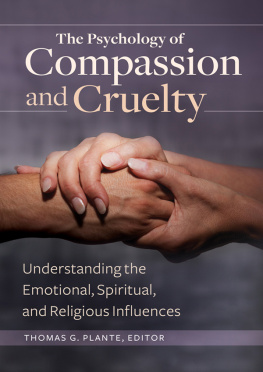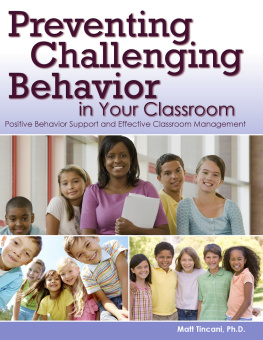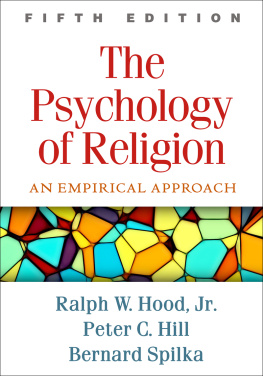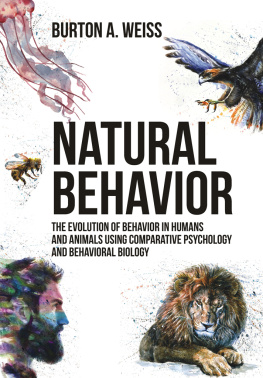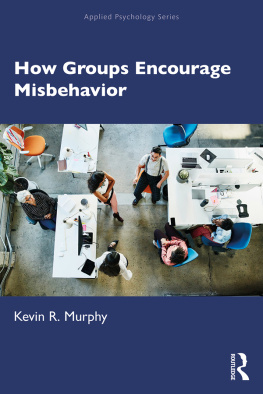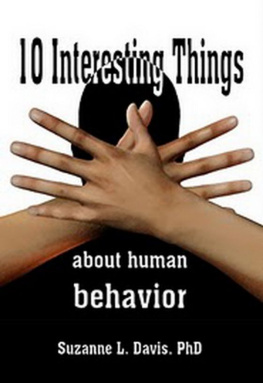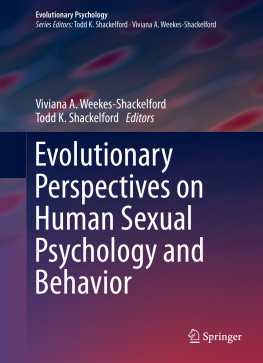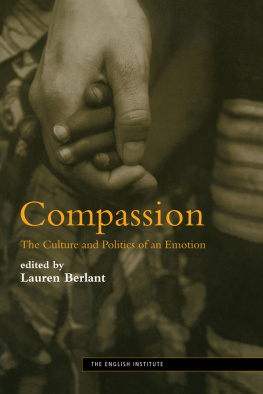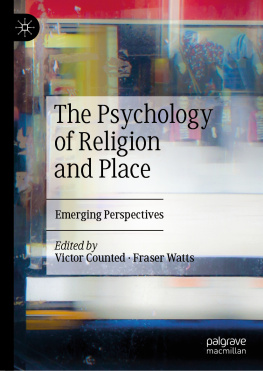The Psychology of Compassion and Cruelty
UNDERSTANDING THE EMOTIONAL, SPIRITUAL, AND RELIGIOUS INFLUENCES
Thomas G. Plante, Editor

Copyright 2015 by Harry L. Wilson
All rights reserved. No part of this publication may be reproduced, stored in a retrieval system, or transmitted, in any form or by any means, electronic, mechanical, photocopying, recording, or otherwise, except for the inclusion of brief quotations in a review, without prior permission in writing from the publisher.
Library of Congress Cataloging-in-Publication Data
The psychology of compassion and cruelty : understanding the emotional, spiritual, and religious influences / Thomas G. Plante, editor.
pages cm
Includes bibliographical references and index.
ISBN 9781440832697 (hardcopy : alk. paper) ISBN 9781440832703 (ebook)
1. Emotions. 2. CompassionReligious aspects. 3. Cruelty. I. Plante, Thomas G., editor.
BF511.P7932015
152.41dc23 2014041239
ISBN: 9781440832697
EISBN: 9781440832703
19 18 17 16 15 1 2 3 4 5
This book is also available on the World Wide Web as an eBook.
Visit www.abc-clio.com for details.
Praeger
An Imprint of ABC-CLIO, LLC
ABC-CLIO, LLC
130 Cremona Drive, P.O. Box 1911
Santa Barbara, California 93116-1911
This book is printed on acid-free paper 
Manufactured in the United States of America
For all those who tirelessly work to create a more
compassionate, humane, and just world.
Contents
CHAPTER 1:
Cruelty, Evolution, and Religion: The Challenge for the New Spiritualities
Paul Gilbert and Hannah Gilbert
CHAPTER 2:
Compassion as a Virtue Affected by Religion, Spirituality, and Other Virtues
Everett L. Worthington Jr., Brandon J. Griffin, Caroline R. Lavelock, and Julie J. Exline
CHAPTER 3:
Cultivating Compassion through Holistic Mindfulness: Evidence for Effective Intervention
Doug Oman
CHAPTER 4:
Compassion in a Competitive Culture
Zenon Lotufo Jr., Francisco Lotufo Neto, and Ricardo Quadros Gouva
CHAPTER 5:
Leading with Compassion: A Moral Compass for Our Time
Diane E. Dreher
CHAPTER 6:
Organizational Compassion: The Need for Leader and Collegial Support beyond Expressing Condolences
Andr L. Delbecq and Stacie F. Chappell
CHAPTER 7:
Does Faith That Does Justice Education Improve Compassion?
Erin Callister and Thomas G. Plante
CHAPTER 8:
Mindful Parents, Resilient Children: The Significance of Compassion for Parenting
Barbara M. Burns and Yaffa Maritz
CHAPTER 9:
Prayer for Others, Loving-Kindness Meditation, and Well-Being: Exploring the Mediating Role of Compassion
John E. Prez
CHAPTER 10:
Zen and the Cultivation of Compassion and Wisdom for Good and for Bad
Sarita Tamayo-Moraga
CHAPTER 11:
Self-Compassion in Psychotherapy: A Psycho-Spiritual Integrative Therapy Approach
Kathleen Wall, Arielle Warner, Eric FitzMedrud, and Kari Sanders Merritt
CHAPTER 12:
Compassion or Compassion Fatigue? The Role of Religion and Spirituality among Caregivers
Michelle Pearce and Amy Wachholtz
CHAPTER 13:
A Dialogue on Race and Reconciliation at Sister Churches in Oakland: The Presence and Limits of Compassion
John R. White
CHAPTER 14:
Destructive Religion, Healing Spirituality: Roots and Sources
J. Harold Ellens
CHAPTER 15:
Spirituality and the Evolution of Compassion
Paul Gilbert and Hannah Gilbert
Preface
Anyone who regularly reads the daily news has to conclude that what the world needs now is more compassion. It is remarkable that so many people can be so cruel to each other and that compassion too often can be very hard to come by. Efforts have been under way in recent years, however, to more fully understand what can be done to increase compassion and minimize cruelty. High-quality behavioral science research has also been conducted to better understand the factors that contribute to both compassionate and cruel behavior. Interestingly, religion and psychology have much to say about this topic and can be used both to better understand and to alter compassionate behavior among both individuals and groups.
Religion and spirituality are often invoked as inspiration and motivation for great compassion, but they also can be used as an excuse for great cruelty too. This has been true for centuries. Curiously, religion and spirituality can bring out the very best but also the very worst in people and have done so for thousands of years. Tragically, we hear about how religion can motivate people to harm others almost daily in the news. Somehow people can convince themselves that God, as they understand this concept, wants and expects them to murder, rape, torture, and brutalize others. Yet others convince themselves that God wants and expects them to risk their own lives and well-being for the good of others, even strangers.
Recently, quality academic scholarship has begun to address these issues and has tried to determine, using the very best that methodological and statistical techniques can currently offer, if religion and spirituality can help us become more compassionate and less cruel. The integration of social sciences with spiritual, religious, and theological approaches has unfolded with collaborative projects, programs, and institutes being developed in many locations and at a rapid pace. Many skilled professionals are examining these issues from multiple angles and perspectives. In doing so, we have learned a lot in recent years that can hopefully help us better appreciate as well as motivate others to nurture compassionate behavior and attitudes using psychological, religious, and spiritual findings and theories.
The purpose of this book is to bring together some of the best thinkers on this topic in order to offer thoughtful and evidence-based reflections about the development and nurturance of compassion. How does the influence of psychology, religion, and spirituality assist in increasing compassion and minimize cruelty? This question is at the heart of each chapter offered in this edited book project designed for academics and educated lay readers who are seeking quality and evidence-based research and practice in the understanding of compassion. This book project is a companion to several earlier edited texts on related topics published by Praeger/Greenwood/ABC-CLIO that include Religion, Spirituality, and Positive Psychology: Understanding the Psychological Fruits of Faith (2012), Contemplative Practices in Action: Spirituality, Meditation, and Health (2010), and Spirit, Science and Health: How the Spiritual Mind Fuels Physical Wellness (2007). All of these books have been developed through the Santa Clara University Spirituality and Health Institute bringing leading and multidisciplinary scholars together for collaborative research, teaching, and conference projects.
Our current book tries to examine the empirical research evidence that is available to see if engagement in religious and spiritual activities does result in more compassionate behavior. Thus, the project is perhaps one of the first to closely examine the relationship between positive psychology and spirituality/religion to reflect on the development and nurturance of compassion.

